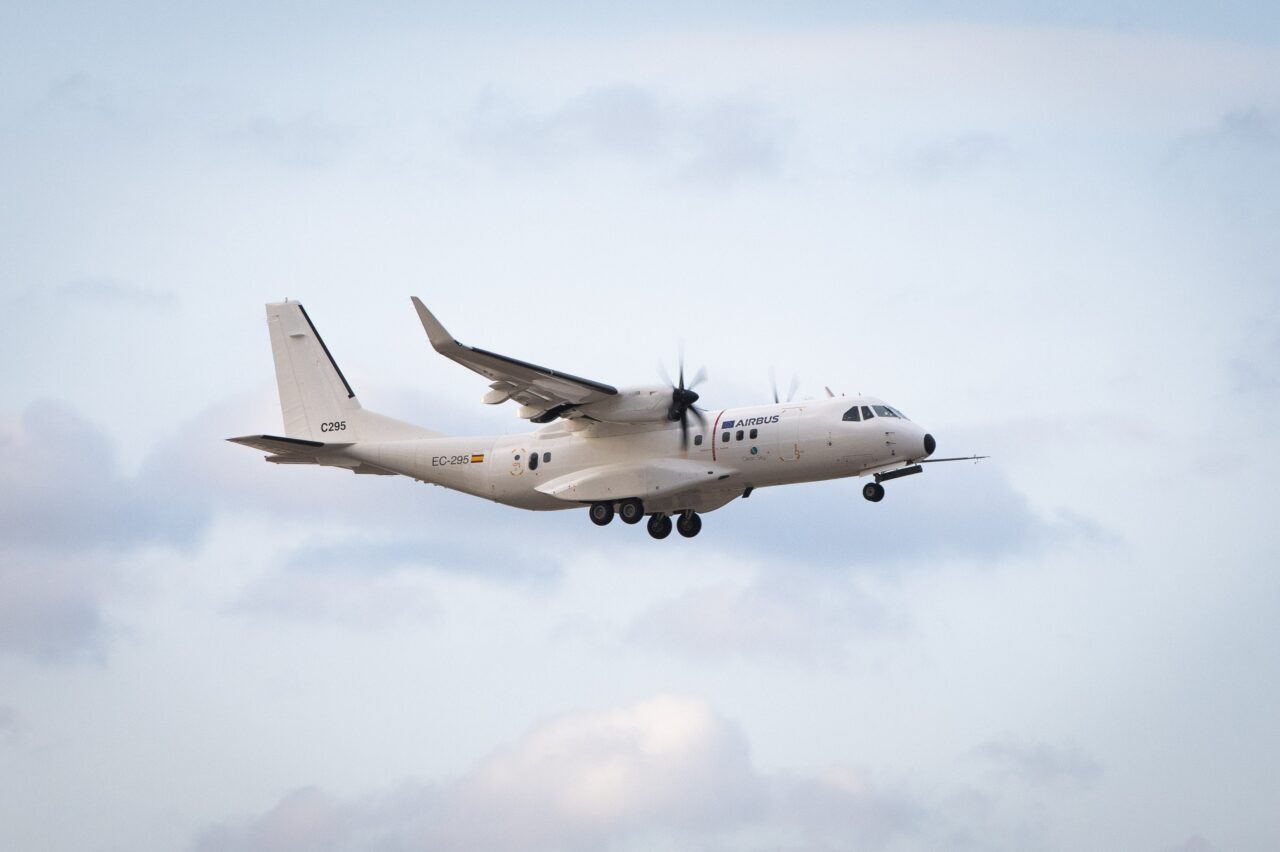
The Flight Test Bed 2, based on the Airbus C295, made its first flight this week. (Photo: Airbus)
The Airbus C295 Flight Test Bed 2 (FTB2), as part of the Clean Sky 2 program, completed its maiden flight successfully, taking off from Seville, Spain. Modifications to the aircraft aim to reduce emissions and noise levels and include a high-efficiency, semi-morphing wing, dynamic winglets, and a flat panel SATCOM antenna, according to the announcement.
The FTB2 is based on the Airbus C295, a new-generation tactical airlifter, and completed ground tests prior to achieving this first flight milestone. According to Airbus, applying the modifications of the FTB2 to a future aircraft configuration could make it possible to achieve “up to 43% CO2 and 70% NOx reductions in a typical Search and Rescue mission of 400 nautical miles, as well as 45% less noise during take-off.”
A more efficient high lift system results from the new flight control system, where flight controls can be adjusted in-flight—including controls for ailerons, flaps, and flap tabs. It will also be possible to optimize the wing’s aerodynamic shape while in flight by leveraging digital control systems.
“The first flight of the C295 FTB2 is a key milestone that represents an important step forward in the programme, following the successful integration of the new aero structures, power-on, and ground tests. A few years ago, this programme was just a dream of a more sustainable future for aviation. Today, we are at the final stage, and we finally made it fly,” Francisco Javier Sánchez Segura, Executive Vice President Engineering for Airbus Defence and Space, said in the announcement from Airbus.
The demonstrator introduces improvements to the manufacturing process such as use of Scalmalloy and additive manufacturing. The aero structures of the wing are also constructed via a new assembly method. Assembling the FTB2’s flaps and ailerons was accomplished through jig-less methods, the use of which also reduces manufacturing costs.
Clean Sky, a public-private research partnership, connects the European Commission with Europe’s aeronautics industry to demonstrate innovative aircraft configurations that accelerate the reduction of CO2, NOx, and noise emissions in aviation. The program’s second phase, the Clean Sky 2 (CS2) joint undertaking, has the additional objective of developing “a strong and globally competitive aeronautical industry and supply chain in Europe,” according to the organization’s website. In combination with Horizon 2020, Europe’s largest research and innovation program, CS2 tests technologies related to its future regional multi-mission aircraft. Although the CS2 program will come to an end in 2023, it is estimated that 75% of the initiatives will reach a high level of readiness by the end of next year.